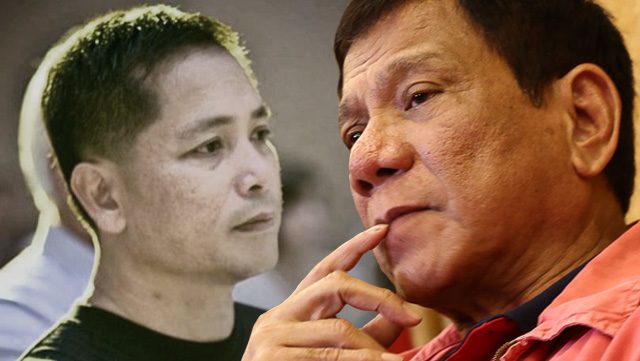SUMMARY
This is AI generated summarization, which may have errors. For context, always refer to the full article.

MANILA, Philippines – The family of slain journalist and environmentalist Gerry Ortega criticized President-elect Rodrigo Duterte for making “hasty and crass generalizations” about murdered journalists in the Philippines.
In a statement on Wednesday, June 1, the Ortega family slammed Duterte’s justification that reporters killed in the country – considered one of the most dangerous countries for members of the press – were targeted because they were corrupt.
The Ortega family scored Duterte for making hasty generalizations and judgments on all cases of media killings.
The case of Gerry Ortega, they said, was an example of a journalist who was killed because of his work to expose corruption in Palawan.
“Doc Gerry Ortega was killed for his courage and integrity. He was murdered precisely because he was honorable. He fought for social justice. He stood up against mining in Palawan. He exposed corruption in the provincial government, which included the misuse of billions of pesos from the Malampaya funds,” the family said.
“This kind of speech is alarming because without due process, it casts absolute judgment on all murdered journalists including those who were killed for telling the truth,” they added.
The radio broadcaster and environmentalist was gunned down in Puerto Princesa City in January 2011. He accused former Palawan governor Joel Reyes of misusing funds sourced from operations of the Malampaya gas and oil fields off the province.
The ex-Palawan governor and his brother, former Coron town mayor Mario Reyes, were implicated in Ortega’s killing. The brothers fled the country in March 2012, and were arrested in Thailand in September 2015. (READ: TIMELINE: Gerry Ortega murder case)
‘Open season’ vs media
The latest controversial statement from the tough-talking former Davao mayor was a response to a question on how he plans to stop media killings in the Philippines.
In a press conference in Davao City on Tuesday night, Duterte responded: “Most of those killed, to be frank, have done something. You won’t be killed if you don’t do anything wrong.”
The Philippines currently ranks 4th on the 2015 Global Impunity Index of New York-based watchdog Committee to Protect Journalists.
In its report, the watchdog noted that the Philippines “remains the only country within the top 5 impunity offenders not engulfed by conflict and acute political instability.”
It also pointed out that no one has been convicted over the 2009 Maguindanao massacre, where 32 journalists were among the 58 killed in the country’s worst case of election-related violence.
Earlier, the National Union of Journalists in the Philippines (NUJP) slammed Duterte for his “appalling” and “crass pronouncement” that, the NUJP said, disrespects the memory of the 176 journalists killed since 1986.
The NUJP also said that Duterte’s statement “in effect declared open season to silence the media, both individual journalists and the institution, on the mere perception of corruption.”
For its part, the Center for Media Freedom and Responsibility (CMFR) acknowledged that while corruption among members of the media remains a continuing problem, this should not be a reason to sanction their murder.
“President-elect Duterte was correct in saying that irresponsible, biased, paid-for reporting and comment do lead to a journalist’s being killed. But the killing of anyone is nevertheless still a crime, and it doesn’t matter whether the victim is a journalist or not. Everyone, including journalists, is entitled to, and deserves the protection of the State,” CMFR said in a statement.
It added, “Far from suggesting that nothing can be done about the killing of journalists, we have made policy recommendations that could help to stop such violence, steps which call on law enforcement agencies to do a better job of protecting citizens and which could help to end the culture of impunity.”
CMFR added that based on its 2006 study, many of the journalists killed since 1986 were murdered for exposing corruption and criminal syndicates in their communities.
The group also echoed the NUJP’s concern on how Duterte’s statement would be interpreted.
“CMFR hopes that the President-elect’s statements are not interpreted by those who would silence journalists for whatever reason—whether they feel they have been abused by the media, or whether they have something to hide from the public—as a license to kill journalists.” – Rappler.com
Add a comment
How does this make you feel?
There are no comments yet. Add your comment to start the conversation.